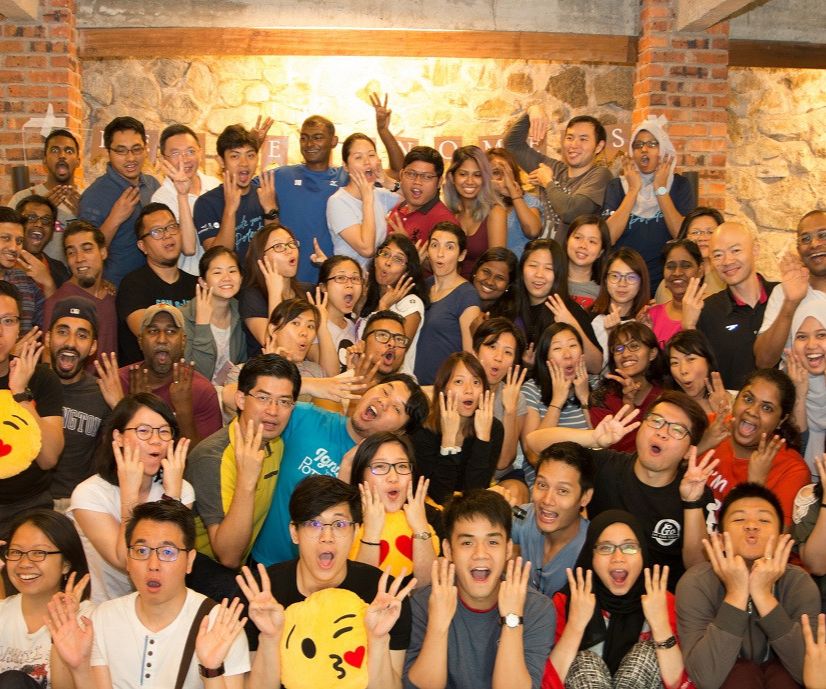How the Discomfort of Paradox can unlock Creativity

The transformative power of holding the tension of opposites and learning to live with contradiction.
The Covid-19 pandemic has crammed a great deal of pressure into our lives, but it has also created an unprecedented opportunity to revisit our own assumptions about how we should live and work. Managers and leaders have had to balance optimism with realism and find new ways to connect although they manage their employees from afar.
These exaggerated tensions and pressures can be a double-edged sword. Research suggests that whether people struggle or thrive with tensions, or competing demands, largely depends on their mindset. With a paradox mindset, tensions can be transformed into new ideas and improved performance. The paradox mindset suggests an alternative perspective, one in which we accept and learn to live with the tensions associated with competing demands.
Over the last few months, for example, scientists and pharmaceutical companies raced to develop beneficial treatments and test kits for Covid-19. The limited availability of test kits was a challenge as medical workers needed to quickly survey large populations to trace asymptomatic Covid-19 carriers. Apparently, working under pressure is an impetus for creativity. One group of Israeli scientists came up with a unique approach to the problem. Instead of testing individual samples, they pooled samples together and developed a dual-staged test. If the pooled sample is negative, it’s implied that all the individuals in the pool are negative (or are no longer contagious). A positive result indicates that at least one person in the pool is positive for coronavirus and everyone in the pool needs additional testing. This creative solution enables faster yet reliable testing of the larger populations with fewer test kits. Rather than using an either/or mentality like more test kits or more asymptomatic carriers, scientists used both/and thinking – the paradox mindset.
It is about “shifting or changing the question, because we are so used to thinking in either/or terms in our day-to-day life when we solve problems. But when we search for both/and solutions, our thinking becomes more flexible, and we start to consider new solutions and to search in new places that we haven't considered before,” Ella Miron-Spektor, INSEAD Associate Professor of Organisational Behaviour, explained in a recent INSEAD Knowledge podcast.
Both/and thinking, or the use of the paradox mindset, opens doors to problem solving, creativity and increased resilience.
>> Read this related article: Why Successful People Don’t Crumble Under Pressure > This article may interest you: Perseverance is Key to Making Your Mark <<
[Link to Ella Miron-Spektor original post]
Explore the video below to see what other content Leaderonomics offers:
Leaving? Well why don't explore and learn about Leaderonomics Talent Acceleration Programme—develop, grow and accelerate a pipeline of high potential employees to their next level of leadership.

Functional
Tags: Personal Growth, Growth, Growth Mindset, Understanding Emotions
References:
- Why the 'paradox' mindset is the key to success (An article by Loizos Heracleous & David Robson https://www.bbc.com/worklife/article/20201109-why-the-paradox-mindset-is-the-key-to-success)
- Israeli lab uses math hack to roll out speedy one-stage pooled virus test (An article by Nathan Jeffay https://www.timesofisrael.com/israeli-lab-uses-math-hack-to-roll-out-speedy-one-stage-pooled-virus-test/)
- Do personal characteristics and cultural values that promote innovation, quality, and efficiency compete or complement each other? (A research paper by Ella Miron, Miriam Erez & Eitan Naveh https://onlinelibrary.wiley.com/doi/abs/10.1002/job.237)
- The Effect of Conformist and Attentive-To-Detail Members on Team Innovation: Reconciling the Innovation Paradox (A research paper by Ella Miron, Miriam Erez & Eitan Naveh https://journals.aom.org/doi/abs/10.5465/amj.2011.64870100)
- Microfoundations of Organizational Paradox: The Problem Is How We Think about the Problem (A research paper by Ella Miron-Spektor, Amy Ingram, Joshua Keller, Wendy K. Smith & Marianne W. Lewis https://journals.aom.org/doi/abs/10.5465/amj.2016.0594)
- Middle ground approach to paradox: Within- and between-culture examination of the creative benefits of paradoxical frames (A research paper by Ella Miron-Spektor and colleagues https://psycnet.apa.org/doiLanding?doi=10.1037%2Fpspp0000160)
- The Oxford Handbook of Group and Organizational Learning (A book by Linda Argote & John M. Levine https://books.google.fr/books?id=1u_GDwAAQBAJ&lpg=PA429&ots=KUMPIKq0nv&lr&pg=PA429#v=onepage&q&f=false)





